The down payment often presents a significant financial hurdle to homeownership. This initial investment, a crucial step toward securing a mortgage, is especially daunting for first-time homebuyers. However, achieving the dream of owning a home is well within reach with strategic planning and a comprehensive understanding of available options.
This article serves as a guide to demystify down payment requirements and illuminate various strategies to help you overcome this financial obstacle and confidently embark on your homeownership journey.
Understanding Down Payment Requirements
While saving for a down payment can feel overwhelming, it’s essential to understand the requirements and options. Contrary to popular belief, a 20% down payment is not always mandatory. Various loan programs and strategies cater to diverse financial situations, making homeownership attainable for a broader range of individuals.
Minimum Down Payment Options
The traditional notion of a 20% down payment often stems from conventional loans. However, several loan programs offer lower minimum down payment requirements, opening doors for those with limited savings.
- Conventional Loans: While 20% is a common benchmark, conventional loans may be secured with as little as 3% down. However, a lower down payment may result in higher interest rates and the requirement for private mortgage insurance (PMI).
- FHA Loans: Insured by the Federal Housing Administration, FHA loans require a minimum down payment of 3.5%, making them an attractive option for first-time homebuyers.
- VA Loans: Guaranteed by the U.S. Department of Veterans Affairs, VA loans offer eligible veterans and active-duty service members the opportunity to purchase a home with $0 down.
- USDA Loans: Designed to facilitate homeownership in rural areas, USDA loans provide eligible borrowers with the possibility of a zero-down payment.
Benefits of a Larger Down Payment
While securing a mortgage with a minimal down payment can be advantageous, contributing a larger amount upfront offers significant financial benefits.
- Lower Monthly Payments: A larger down payment reduces the principal loan amount, resulting in lower monthly mortgage payments and increased affordability.
- Reduced Interest Paid: By minimizing the loan amount, a larger down payment translates to less interest accrued over the life of the loan, leading to substantial savings over time.
- Avoiding Private Mortgage Insurance (PMI): Typically required for loans with less than 20% down, PMI protects the lender in case of borrower default. A larger down payment allows you to avoid this added monthly expense.
- Increased Equity from Day One: A substantial down payment equals a higher initial equity stake in your home, providing a more robust financial foundation.
Calculating Your Ideal Down Payment
Determining the optimal down payment involves carefully considering various factors, including the purchase price, desired loan type, prevailing interest rates, and financial circumstances.
To estimate your ideal down payment, consider using online calculators or consulting with a financial advisor to assess your affordability and long-term financial goals.
Saving Strategies for Your Down Payment
Accumulating the funds for a down payment requires a disciplined and strategic approach to saving. You can accelerate your progress toward achieving your homeownership goals by implementing effective strategies and cultivating consistent financial habits.
Budgeting and Cutting Expenses
Creating a comprehensive budget is paramount in identifying areas where you can reduce spending and allocate more funds toward your down payment savings.
- Track Your Spending: Use budgeting apps, spreadsheets, or traditional methods to track your income and expenses meticulously. Analyze your spending patterns to identify non-essential expenditures.
- Reduce Non-Essential Expenses: Critically evaluate your spending habits and identify areas where you can cut back. Consider reducing discretionary expenses such as dining out, entertainment subscriptions, and impulse purchases.
- Negotiate Lower Bills: Explore opportunities to lower recurring expenses by negotiating with service providers for more favorable utilities, internet, and insurance rates.
Boosting Your Income
In addition to reducing expenses, exploring avenues to increase your income can significantly accelerate your down payment savings.
- Explore Side Hustles: Consider supplementing your primary income with a part-time job, freelance work, or a side business aligned with your skills and interests.
- Monetize Your Skills: Leverage your talents and hobbies to generate additional income. Offer services such as tutoring, crafting, photography, or consulting.
- Seek Career Advancement: Explore opportunities for career advancement within your current company or seek higher-paying positions in your field.
Automated Savings Plans
Automating your savings is a powerful tool to ensure consistent progress toward your down payment goal.
- Set Up Automatic Transfers: Schedule recurring automatic transfers from your checking account to a dedicated savings account specifically earmarked for your down payment.
- Utilize Round-Up Apps: Employ financial apps that round up your purchases to the nearest dollar and automatically deposit the difference into your savings account.
- Consider High-Yield Savings Accounts: Maximize your savings growth by utilizing high-yield savings accounts or money market accounts that offer competitive interest rates.
Exploring Down Payment Assistance Programs
Various down payment assistance programs (DPAs) offer valuable resources and support for prospective homebuyers seeking to bridge the financial gap. These programs, often provided by government agencies, non-profit organizations, and even employers, can significantly reduce the financial burden associated with homeownership.
Government-Backed Programs
Several federal agencies offer DPA programs to make homeownership more accessible to a wider range of individuals and families.
- Federal Housing Administration (FHA) Loans: Besides lower credit score requirements and down payment minimums, FHA loans may be combined with down payment assistance programs offered through state and local housing agencies.
- U.S. Department of Veterans Affairs (VA) Loans: VA loans offer eligible veterans and active-duty military personnel favorable terms and often require no down payment, making homeownership more attainable for those who have served the country.
- U.S. Department of Agriculture (USDA) Loans: USDA loans cater specifically to individuals and families in designated rural areas, providing access to financing with zero down payment requirements for eligible borrowers.
State and Local Programs
Beyond federal programs, numerous state and local governments offer a range of DPA initiatives tailored to the specific needs of their communities.
- Homebuyer Grants: Many states and cities provide grants to eligible first-time homebuyers, offering funds that do not require repayment and can be used for down payment or closing costs.
- Forgivable Loans: Some programs offer forgivable loans with specific conditions, such as remaining in the home for a designated period. The loan may be fully or partially forgiven if the conditions are met.
- Matched Savings Programs: Certain initiatives offer to match a portion of the funds saved by prospective homebuyers, effectively increasing their down payment savings through government contributions.
Employer-Assisted Housing
Sometimes, employers may offer assistance programs to help their employees achieve homeownership.
- Employer-Sponsored DPAs: Inquire with your human resources department about potential down payment assistance programs offered as an employee benefit.
- Tax Benefits: Some employers may provide tax advantages or matching contributions to employee savings accounts dedicated to homeownership.
- Relocation Assistance: If your employer requires relocation, they may offer financial assistance with housing, including funds for a down payment.
It’s crucial to research each program’s specific eligibility requirements and terms to determine which options best suit your individual circumstances and homeownership goals.
Alternative Down Payment Options
While traditional savings and government assistance programs provide valuable pathways to homeownership, exploring alternative down payment options can further expand your possibilities. Depending on your circumstances and financial network, these less conventional methods may offer unique advantages.
Gifts and Family Loans
Leveraging the support of family members can be a viable option for securing funds for a down payment.
- Gifts: In many cases, family members are willing to contribute toward a loved one’s down payment as a gift. Understanding any applicable gift tax rules and ensuring proper documentation to comply with lender requirements is essential.
- Family Loans: Formalizing a loan agreement with a family member can provide a structured approach with clearly defined terms, repayment schedules, and potentially more favorable interest rates than traditional loans.
Home Equity Loans and HELOCs
For existing homeowners, tapping into their home equity can provide a source of funds for a down payment on a new property.
- Home Equity Loans: These loans provide a lump sum secured by your existing home equity, offering access to significant capital. However, it’s crucial to consider the implications of adding another loan and the potential risks if property values decline.
- Home Equity Lines of Credit (HELOCs): HELOCs function similarly to credit cards, allowing homeowners to borrow against their equity as needed. This flexibility can be beneficial for managing cash flow and accessing funds for a down payment.
Crowdfunding
In the digital age, online platforms have emerged to raise funds for various purposes, including home down payments.
- Crowdfunding Platforms: Websites dedicated to crowdfunding allow individuals to share their stories and solicit contributions from their network and the broader online community.
- Compelling Narrative: Crafting a compelling narrative that resonates with potential donors is crucial for successful crowdfunding campaigns. Transparency and clearly defined use of funds are essential for building trust and attracting support.
While alternative options offer unique advantages, it’s crucial to carefully weigh the associated risks, costs, and long-term implications before proceeding. Consulting with a financial advisor can provide valuable insights and help you make informed decisions aligned with your financial goals.
Maximizing Your Down Payment Strategy
While implementing various down payment strategies can significantly contribute to achieving your homeownership goals, optimizing your overall financial profile can further enhance your prospects and secure more favorable terms.
Improving Your Credit Score
Your credit score is pivotal in the mortgage approval process and significantly influences the interest rates lenders offer. A higher credit score demonstrates financial responsibility and lowers the perceived risk for lenders, resulting in more advantageous loan terms.
- Monitor Your Credit Report: Regularly review your credit report from all three major credit bureaus (Equifax, Experian, and TransUnion) to identify any inaccuracies or areas for improvement.
- Pay Bills On Time: Consistently paying your bills on time is crucial in establishing a positive credit history and maintaining a good credit score.
- Reduce Credit Card Balances: High credit utilization can negatively impact your credit score. Aim to keep your credit card balances below 30% of your available credit limit.
- Address Credit Report Errors: If you find any errors on your credit report, promptly dispute them with the respective credit bureau to ensure accurate reporting.
Choosing the Right Lender and Loan
Selecting the appropriate lender and loan product is essential for securing a mortgage that aligns with your financial needs and goals.
- Shop Around and Compare Rates: Obtain quotes from multiple lenders to compare interest rates, loan terms, and associated fees. Don’t hesitate to negotiate for better terms.
- Consider Different Loan Types: Explore various loan options, such as conventional, FHA, VA, and USDA loans, to determine which program best suits your financial situation and eligibility.
- Factor in Closing Costs: In addition to the down payment, the factor in closing costs typically ranges from 2% to 5% of the loan amount.
Getting Pre-Approved for a Mortgage
Obtaining pre-approval for a mortgage provides a clear picture of your borrowing capacity and strengthens your position as a buyer.
- Demonstrate Financial Preparedness: Pre-approval demonstrates to sellers that you are a serious and qualified buyer, increasing your credibility and the likelihood of your offer being accepted.
- Determine Affordability: The pre-approval process helps determine how much you can realistically afford to borrow, preventing you from overextending your finances.
- Gather Necessary Documentation: Be prepared to provide lenders with documentation such as income verification, bank statements, and credit reports during pre-approval.
By proactively improving your credit score, carefully selecting a lender and loan product, and securing pre-approval, you can confidently maximize your down payment strategy and navigate the path to homeownership.
Closing Points
Prospective homebuyers can confidently navigate down payment options by understanding the diverse range of strategies available, from government assistance programs and alternative financing options to disciplined saving and credit score optimization.
Remember, the journey toward owning a home is unique to each individual. Carefully assess your financial situation, explore the options outlined in this guide, and seek guidance from qualified professionals to develop a personalized strategy that aligns with your goals and aspirations.
© 2024 xpertRealtyMarketing.



